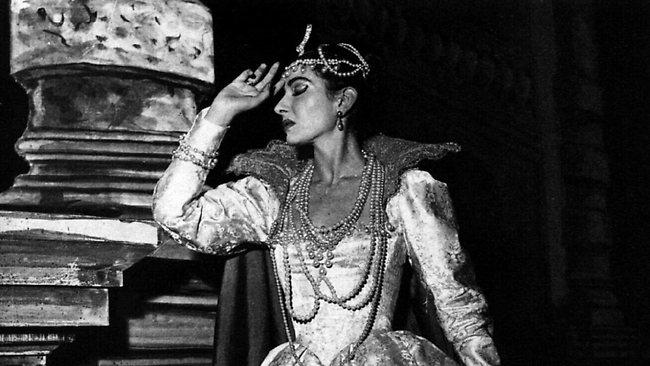Oh bravura: the opera stage has always demanded more than a star who stands and delivers
SOME of the greatest performers in opera have been fine actors.

THERE was a time when the main objection to operatic performances, among those wondering whether to give them a try, was the level of acting in them. That was before "elitism" and other excuses had been invented.
I haven't heard much about that lately, though of course there are complaints about specific singers and performances. But 30 to 40 years ago theatregoers would regularly contrast the level of acting in plays with the alleged level in opera. So I'm led to wonder whether there's a general feeling that things have improved. My impression is that they have got more complicated, with many more factors to consider.
First, the once widely held view that until Maria Callas became a leading figure in the early 1950s opera singers just stood on stage and held forth is an absurd falsehood. Anyone who has watched Lotte Lehmann's masterclasses on DVD will know that, even in her mid-70s with no singing voice and no props, her impersonation of various roles was more moving than almost anyone else's.
One of the things that made Callas so extraordinary was that she brought the intensity and inwardness that Lehmann brought to Sieglinde to such roles as Norma and Lucia. Her acting, of which there is a miserably small amount on film, was extremely powerful but highly stylised.
This shows that naturalistic acting, of the kind one can see in a contemporary play, or more powerfully in the highest quality television, in such series as Mad Men or The Wire, is something completely different from what one would want in all but a small number of operas.
For a director to aim at a kind of realism that involves a heroine dying of consumption bringing up cupfuls of blood is an error not only of taste but also of judgment.
What Samuel Johnson wrote in his Preface to Shakespeare applies exactly to opera: "It is false that any representation is mistaken for reality; that any dramatic fable in its materiality was ever credible, or, for a single moment, was ever credited . . . It will be asked how the drama moves, if it is not credited. It is credited with all the credit due to a drama."
So how does that bear on acting in opera? Clearly, the kind of acting we want depends on the kind of opera: Monteverdi's Orfeo requires a different approach to L'Incoronazione di Poppea, since the first is mythic and the second pseudo-historical.
One of the most annoying features of the contemporary operatic scene is that genres are confused in the licence that directors now have to make any opera into a critique of what they claim to have distaste for -- so that, for instance, Der fliegende Hollander becomes an attack on capitalism when, sanely seen, that is not even the kind of thing it could be.
So pervasive has Regietheater become that acting in most productions tends to be a recessive consideration. The audience is expected to be so involved with working out the structure and implications of the allegory the director is considering that there is hardly energy to notice how the performers are acting, and even, in some cases, how they are singing. They become mere pawns in the banal playing out of some ideas in a director's trite and trendy mind.
Notwithstanding which, there is no doubt that cinema and TV have led audiences to expect a degree of verisimilitude, and sometimes to be handsomely rewarded.
Some of the greatest performers today are fine actors, to the point where one feels they could pursue a career on what used to be called the "legitimate" stage. British baritone Simon Keenlyside and German tenor Jonas Kaufmann may or may not be finer actors than any of their predecessors -- we have no certain means of knowing -- but they are very fine indeed.
So fine that one wonders why, when they are put into idiotic productions -- such as the atrocious Pelleas et Melisande staged at the Royal Opera in London a few years ago, with Keenlyside, like almost all the other performers, dressed in a kind of white crinoline, or Bayreuth's Lohengrin with most of the cast dressed as rats -- those distinguished artists don't simply refuse to take part in such denaturing enterprises.
Acting talent seems beside the point when the director is not interested in the work he is directing but in his own idee fixe.
The Spectator


